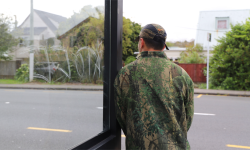[{"id":13557,"order":0,"imagePath":"https://admin.ezystream.com/static/images/article/57c44758-0f64-4cb7-85ce-544d87b50a64.png","type":"image","content":"https://admin.ezystream.com/static/images/article/57c44758-0f64-4cb7-85ce-544d87b50a64.png"},{"id":13558,"order":1,"contentText":"William Chong from our Baptist NZ whu0101nau shares his article reproduced with permission from Christianity Today (CT): Former members describe how Shincheonji infiltrated traditional churches and campus ministries with deceptive practices and heretical beliefs.
Laura was volunteering at the welcome desk of LIFE Central church in Auckland in April 2015 when a friendly man introduced himself, asked a few questions about her church, and then left.
Unbeknownst to Laura, after this brief encounter, the man organized one of his co-workers to return to the church the next week. The woman explained that she had just moved from South Africa as a student conducting research on education. After talking for a bit, Laura started to open up to her about some of her struggles and questions about the faith. In response, the woman suggested Laura meet with her mentor, who she said could address Laurau2019s problems about the Bible.
She began meeting with the womanu2019s mentor, a Korean woman also visiting from South Africa, for weekly Bible studies. After a few weeks, the mentor began pestering Laura to join a larger six-person class that met three times a week. Laura eventually agreed.
As someone who had experienced hypocrisy and lukewarm community at the mainline Presbyterian and Pentecostal churches she attended in the past, Laura found the intense, Bible-based classes compelling. Laura recalled a tight-knit group of South Africans, Koreans, and New Zealanders eager to learn Godu2019s Word. Laura said the instructor taught her how to read Jesusu2019 parables and the Book of Revelation as prophecies foretelling Jesusu2019 Second Coming. The teacher stressed that she and her fellow students needed to know the secret meaning of certain Bible verses to obtain true salvation.
u201cAt the time, I thought it was a beautiful way to read the Bibleu2014it was so poetic,u201d Laura said. By the end of the year, she and her five classmates officially joined (or u201cpassed overu201d) into a group she then learned was called Shincheonji. (Laura asked to use only her first name as she still has friends in the group.)
Shincheonji, which means u201cnew heaven and new earth,u201d is a religious movement established in South Korea in 1984 by Lee Man-Hee. Members are taught that Lee is the u201cpromised pastoru201d of the New Testamentu2014the messenger mentioned in Revelation 22:16u2014and that the Book of Revelation is written in parables that only he can understand. The group is known for its intensive Bible studies, recruitment of members from existing churches and Christian fellowships, and use of deceptive practices like withholding names and affiliation.
After spreading in South Korea, Shincheonji expanded internationally in 1990. The groupu2019s internal statistics from 2019 obtained by CT said that almost 32,000 of the groupu2019s about 240,000 official members live outside of Korea.
In response, Christians around the world have pushed back. In South Korea, churches routinely put up signs that read u201cShincheonji is not welcomed here.u201d Former members have shared their stories on websites, podcasts, and internet forums like Reddit to debunk Shincheonjiu2019s theology and expose its deceptive practices. In New Zealand, pastors have held talks and seminars to inform church leaders on how to protect their flock. Christian counselors provide counseling for people leaving Shincheonji.
CT tracked Shincheonjiu2019s spread in New Zealand over the past eight years, interviewing former members, pastors, and experts on what churches around the world should look for and how churches can respond to the group. Shincheonji in New Zealand did not respond to CTu2019s request to comment by publication time.
Continue reading this article at Christianity Today.
Read an interview with an experienced cult counsellor on escaping high-control religious groups here.
The Olive Leaf Network
This network seeks u201cto connect religious abuse survivors and leavers of high-demand religious groups, with wider support. In doing so, we extend an olive leaf to those who may be afloat on the difficult seas of religious trauma, abuse, or excommunicationu201d.
Find out more here.
Photo: A Branch of the Shincheonji Church of Jesus. By Jung Yeon-Je / Getty. Published in Christianity Today.
","type":"text"}] A Korean sect targeted New Zealand Christians. Did churches respond effectively?
Articles
| William Chong | 20 December 2023
- Syntax error, malformed JSON
Read More Articles
Register now for Hui ā Māori 2024: ‘no greater time to be unified’
A call for Baptist Māori to engage with the significant kōrero coming to Hui ā Māori 2024.
Reflections on the season of Matariki
Three Baptist Māori share what they’ll be doing to acknowledge this season.
Are our social support services making a difference?
Transactional or transformational support: what services should our local church aim for to empower our communities?


